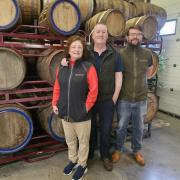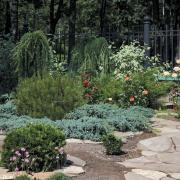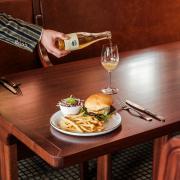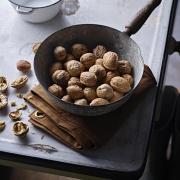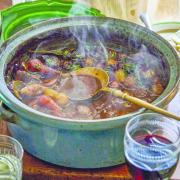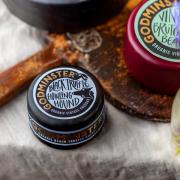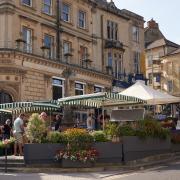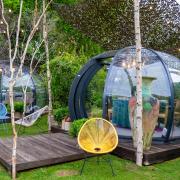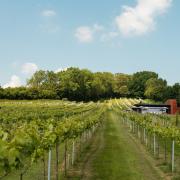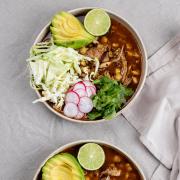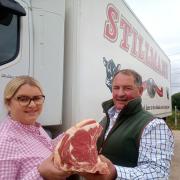We meet Andrew Lowkes, the founder of Landrace, the company where they mill their own flour to make a range of delicious baked goods in Bruton and Bath.
The New American stone mill which is central to the ambition of Landrace is housed at Westcombe Dairy in Bruton. Combine this mill with the baking of fresh flour from grains sourced directly from a progressive community of farmers in the South West and you’ll see (and taste) why Landrace is offering a truly unique product in our county. Andrew Lowkes sits at the helm of the bakery and works alongside his business partner - Westcombe Dairy’s Tom Calver – a paring which occurred after both worked together at Neal’s Yard Dairy in London. ‘Tom and I became friends, but it wasn’t until I left Neal’s Yard and took a role at Pump Street Chocolate in Suffolk that the idea of Landrace came about. Two years later, I’d moved to Bath and the rest, as they say is.. a lot of hard work and very long hours!’ Creative energy, ambition and ‘his understanding of food and farming in a progressive, sophisticated way’ were just a few reasons why Andrew was keen to go into business with Tom. ‘The idea of partnering with a farmer and building our system from the ground up was a very delicious prospect.’ says Andrew.
Alongside the mill in Bruton, Landrace also own some land at Westcombe which is used to grow grain for the bakery in Walcot Street, Bath. Landrace harvest between five and ten tonnes of wheat from Westcombe every year and are embracing this more traditional milling method. Milling grains between two stones is as ancient as it is essential – it’s how human civilisations have converted an agricultural product (grain) into an ingredient (flour) for over 10,000 years. With the industrial revolution, the UK began to import cheaper and higher protein grains from abroad, notably Canada and North America and milling moved out from agricultural communities and was increasingly undertaken at industrial dockland factories. Steel rollers replaced stones, becoming the prevailing method by which grain was refined to white flour. ‘These changes are complex but ultimately have led to a loss of flavour, nutrition, choice and sense of community and shared endeavour. Our mill is an attempt to restore some of the value and integrity to our primary ingredient of grain. As well as re-establish some of those rural links between farmers-millers-bakers-consumers that have been broken by the industrial system.’

The Landrace story has continued to evolve. Since Andrew and the Landrace team opened the bakery in Walcot Street in Bath in February 2019, the last few years have also seen the arrival of ‘Upstairs at Landrace’ - a beautiful, simply-styled restaurant that sits atop the bakery. ‘The most compelling way to put all of these ideas into action is to make really delicious food,’ enthuses Andrew. ‘It won’t work if no one likes what we make. And to do so, we need skilled crafts-people on our side - bakers, pastry chefs, cooks and millers.’ With head chef, Rob Sachdev ( previously of East London’s much-loved Brawn restaurant) creating a daily-changing blackboard menu, ‘Upstairs at Landrace’ exudes a relaxed service style, simple preparations, excellent ingredients and classic pairings, with its own sourdough featuring heavily, alongside fresh hand rolled pastas made from the stoneground flours. ‘The restaurant is built on the shoulders of the continental French bistro / Italian trattoria tradition’ says Andrew, though diners searching for traditional British bakes with a modern take on the local tradition of the Bath bun won’t be disappointed. Eccles cakes are also on display, though these are made using Somerset Cider Brandy in the fruit mix for a Somerset twist on what is traditionally a Northern sweet treat. Landrace lead with the ingredients, and work with a lot of traditional British soft wheat varieties, perfect for scones, cakes and fluffy buns. ‘Essentially, a ‘Landrace’ is a diverse population of plant or animal that’s able to adapt and evolve to its unique environmental conditions. I hope that we remain in this permanent state of evolution - dynamic, resilient and joyful,” muses Andrew.




